Day 48 – Bar Harbor to Frenchboro

In the morning, after our best efforts to sleep through too many twilight boat wakes and the sound of a hard plastic mooring rapping on the hull, we went back to the town dock. Andrew paid for the night’s mooring. It actually did not belong to the town, as it turned out, but we had used the dock for many hours the day before and contributed anyway.
We headed out into Frenchman Bay, hugging the steep rocky shore around the foot of Mt. Champlain. A large whale watch boat rushed by us, catamaran hulls carting out-of-staters close to the cliffs on their way to harass motor-less cetaceans. We passed Sand Beach and watched some climbers scaling Otter Cliffs.
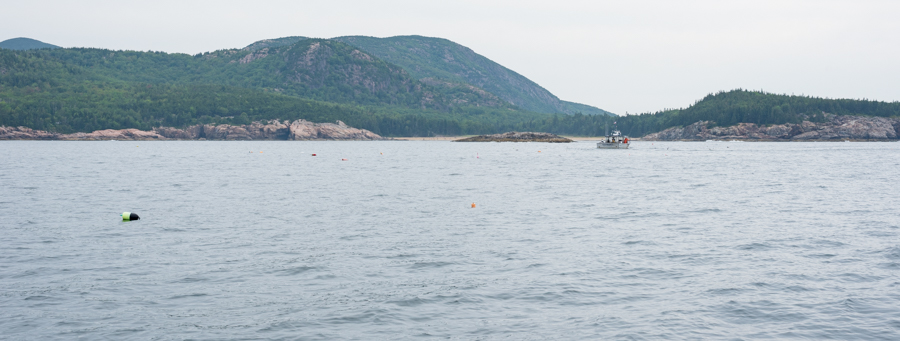 We motored along until Isla choked through the end of the main tank. Andrew put in half of our last can and I dropped the RPMs after she rumbled back to life. We anchored outside the mooring field off of Little Cranberry Island. A barge dropped a trash truck off at the boat launch next to the docks by inching as far forward as possible and dropping its ramp on solid ground.
We motored along until Isla choked through the end of the main tank. Andrew put in half of our last can and I dropped the RPMs after she rumbled back to life. We anchored outside the mooring field off of Little Cranberry Island. A barge dropped a trash truck off at the boat launch next to the docks by inching as far forward as possible and dropping its ramp on solid ground.
We got ready to explore the island on foot and grabbed our bags and cameras. Caly did nothing. Andrew decided his hair was long enough for a top knot and we rowed ashore. On the pier a fisherman greeted us, or Andrew rather, with an emphatic, “Awesome man bun!”
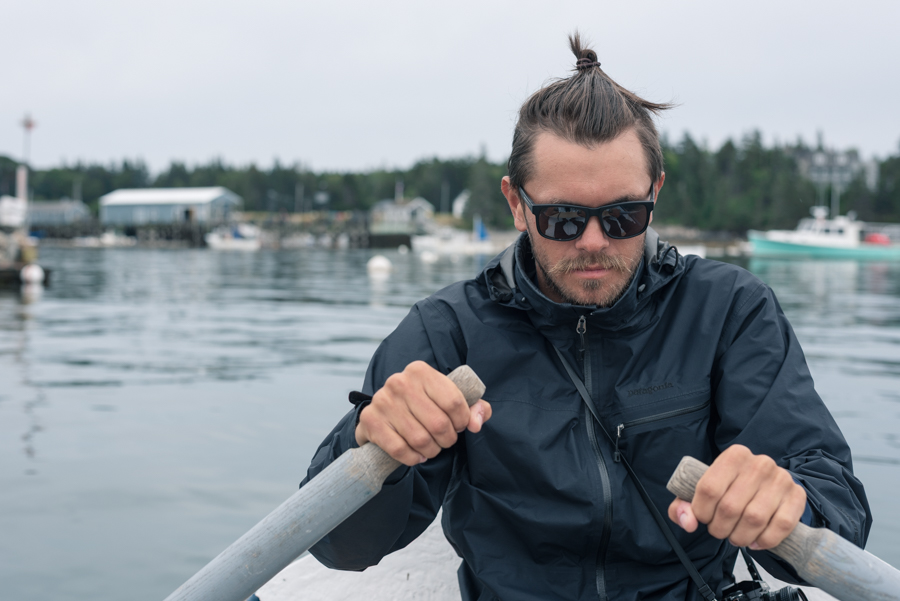
The ferry docked, carrying a crowd of tourists that then engulfed us and made our feat of arrival by sailboat indistinguishable from buying a ferry ticket and sitting down for a while. We reassured ourselves that our pictures of the island would be cooler than these tourists’; we were real adventurers.
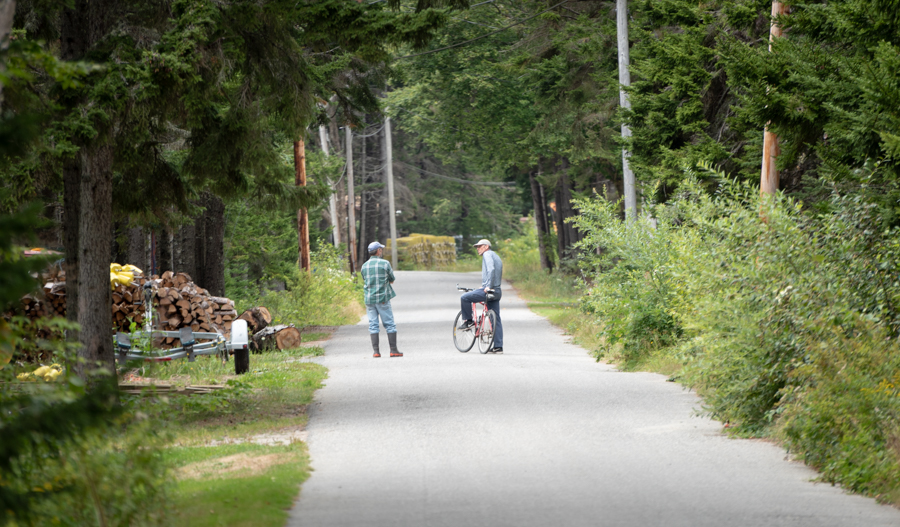
There was a little museum maintained by the National Park Service, documenting centuries of fishermen and wealthy part time residents who cohabitated the island. We walked through the hamlet of Islesford, small houses, apple trees, empty roads, our footsteps often loud in the perfect stillness.
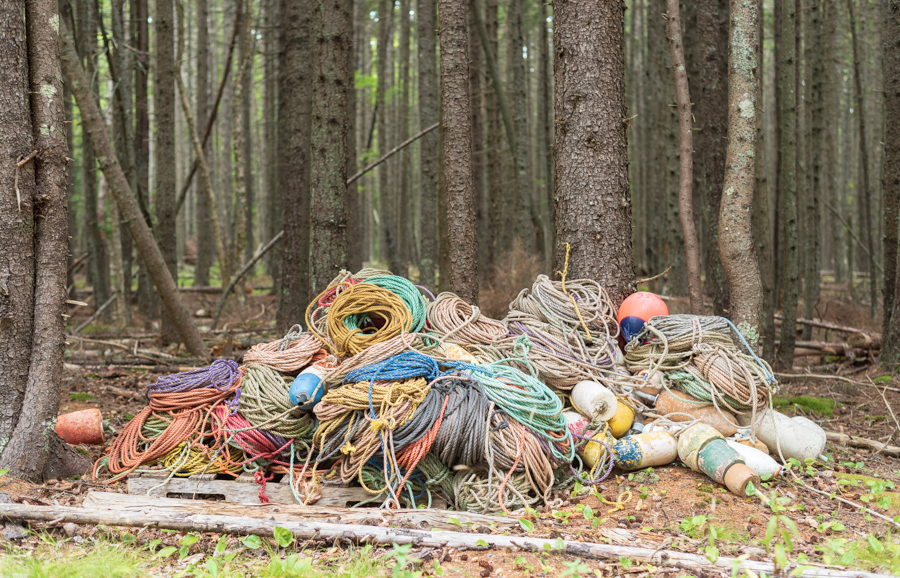
 We walked to the old life saving station on Bar Point. Life saving stations would house rescue crews tasked with helping survivors of shipwrecks by piloting small boats into the requisite shallow waters surrounding a wreck. The U.S. Life Saving Service merged with the Revenue Cutter Service to form the Coast Guard in 1915. Thank you museum trivia.
We walked to the old life saving station on Bar Point. Life saving stations would house rescue crews tasked with helping survivors of shipwrecks by piloting small boats into the requisite shallow waters surrounding a wreck. The U.S. Life Saving Service merged with the Revenue Cutter Service to form the Coast Guard in 1915. Thank you museum trivia.
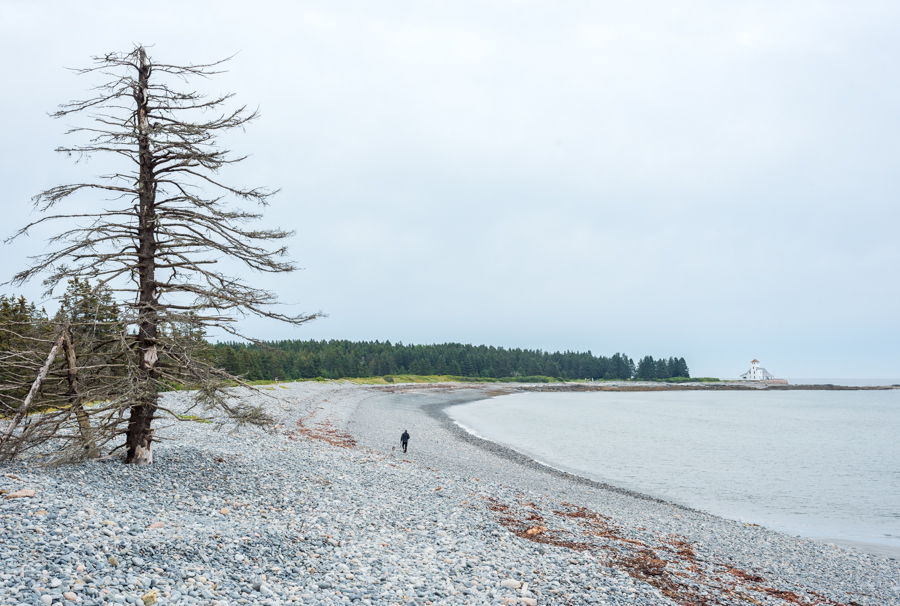 The station was now privately owned, and so we walked below the high tide mark out to the end of the point. I overestimated how far out we could walk towards a little island, Thrumcap, before the rising tide would cover our retreat over the rocks between shore and what had been a drying sea bed. I found myself barefoot, jeans rolled high, walking over painfully barnacled rocks and waving seaweed.
The station was now privately owned, and so we walked below the high tide mark out to the end of the point. I overestimated how far out we could walk towards a little island, Thrumcap, before the rising tide would cover our retreat over the rocks between shore and what had been a drying sea bed. I found myself barefoot, jeans rolled high, walking over painfully barnacled rocks and waving seaweed.
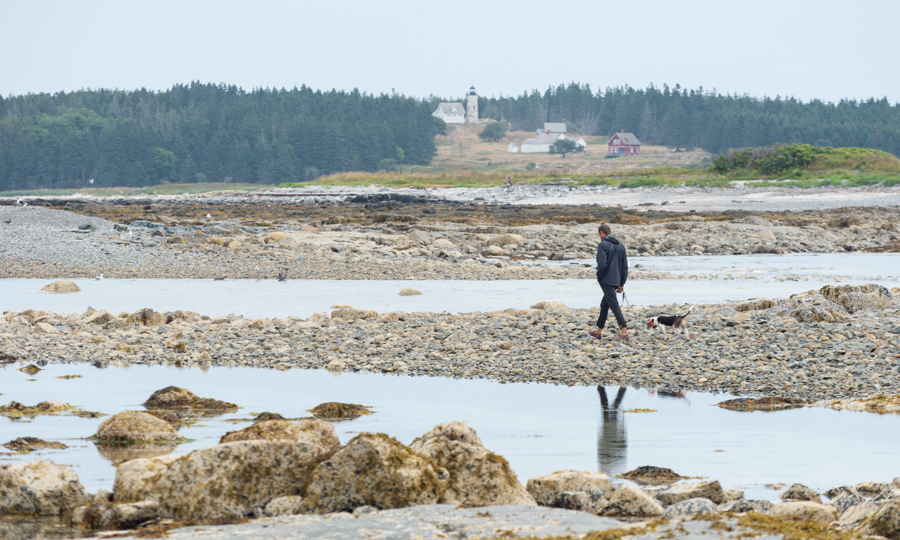 The northern end of the island had an excellent view of MDI. When we returned from our walk we found the restaurant, the Islesford dock, full of patrons, locals and tourists alike, surprising bustle for the sleepy village. The island coop had a gas pump, and so I rowed out to Isla to fetch the gas cans.
The northern end of the island had an excellent view of MDI. When we returned from our walk we found the restaurant, the Islesford dock, full of patrons, locals and tourists alike, surprising bustle for the sleepy village. The island coop had a gas pump, and so I rowed out to Isla to fetch the gas cans.
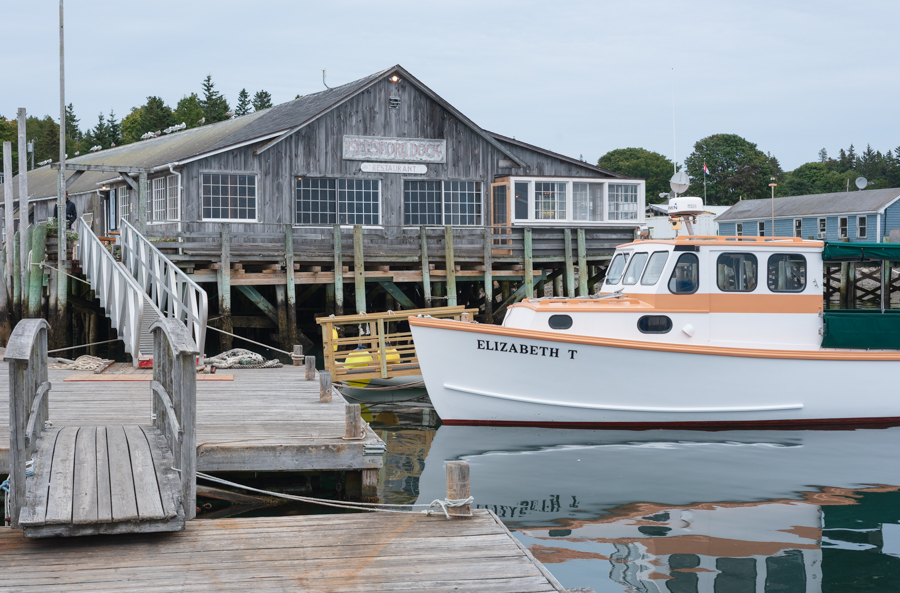
As we filled up, Andrew noticed the gas looked pink, and he was very concerned it may actually be diesel. After a long discussion with the equally curious owner and a phone call to his gas supplier, we were fairly certain it wouldn’t ruin our engine. Later research raised a suspicion that the supplier was selling a mixture of dyed and undyed fuel. The dyed fuels aren’t taxed for use in vehicles, and are thereby much cheaper, but of course illegal to sell and use as undyed. Isla was not bothered by the details of fuel tax and started right up, pink gas and all.
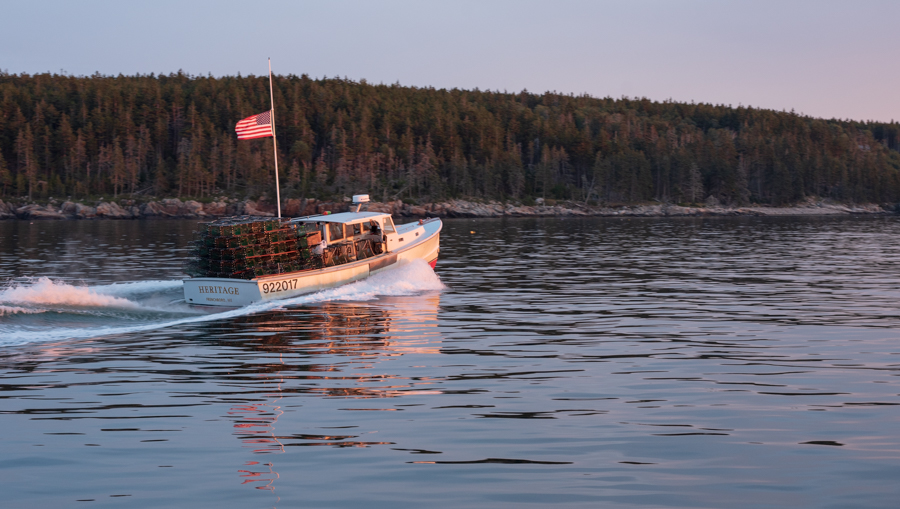 We made our way to Frenchboro and as we approached Crow Island, shut off the engine to enjoy the building sunset before we entered the harbor. The scene proved wonderful. After the last light had faded, we dropped the hook. in the shallow spot between Harbor and Long Island, in what turned out to be a lot of tidal current.
We made our way to Frenchboro and as we approached Crow Island, shut off the engine to enjoy the building sunset before we entered the harbor. The scene proved wonderful. After the last light had faded, we dropped the hook. in the shallow spot between Harbor and Long Island, in what turned out to be a lot of tidal current.
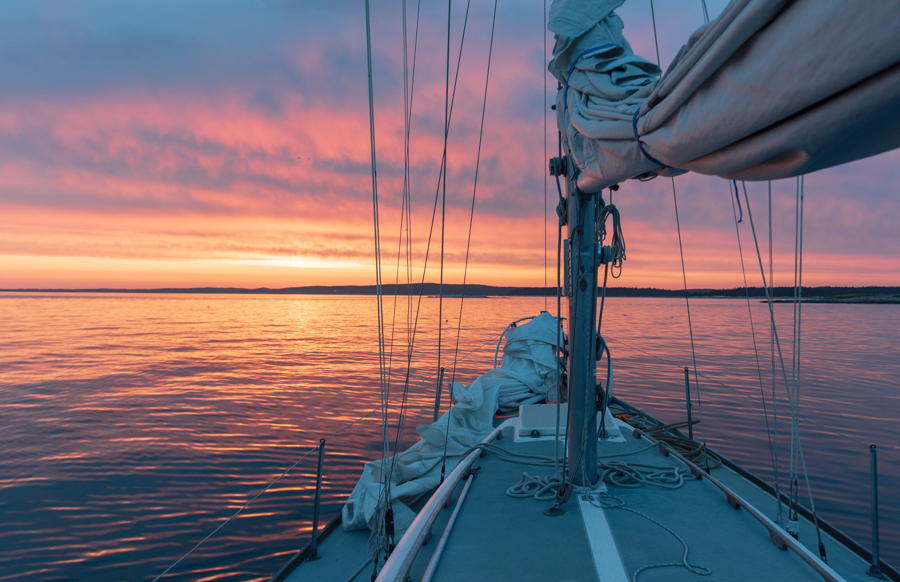 After some discussion over whether the inevitable change in direction warranted putting out a second anchor set on the opposite vector, we decided to trust the Rocna would reset without issue. Andrew set an alarm for the anchor on his phone, which would sound if the boat wandered too far.
After some discussion over whether the inevitable change in direction warranted putting out a second anchor set on the opposite vector, we decided to trust the Rocna would reset without issue. Andrew set an alarm for the anchor on his phone, which would sound if the boat wandered too far.